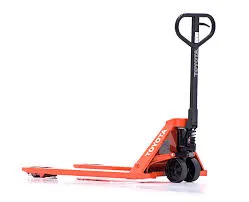


The Rise of Digital Crane Scales Revolutionizing Weight Measurement in Industry
In the modern world of industrial and commercial operations, accurate weight measurement is paramount for efficiency, safety, and productivity. Traditional weighing methods, often cumbersome and time-consuming, are gradually being phased out in favor of more advanced technologies. One such advancement is the digital crane scale, a device that has transformed the way industries handle weight measurements for heavy loads.
Digital crane scales are designed to weigh heavy objects suspended from a hook, and they come equipped with a digital display that provides easy-to-read weight measurements. These scales are specifically engineered to handle significant weight capacities, making them ideal for industries such as manufacturing, construction, shipping, and logistics. They offer numerous advantages over traditional scales, including enhanced accuracy, portability, and user convenience.
One of the most significant benefits of digital crane scales is their accuracy and precision. Traditional scales often have limitations in terms of the weight they can effectively measure and the precision they can offer. Digital crane scales, on the other hand, are capable of providing precise readings, often with decimal point accuracy. This is crucial in industrial settings where even a slight miscalculation can lead to costly errors, safety hazards, or operational delays.
Another key advantage of digital crane scales is their ease of use. These devices typically feature user-friendly interfaces and clear digital displays, allowing operators to read measurements quickly and with minimal effort. Many models also include remote control functions, enabling users to operate the scale from a distance. This feature not only enhances convenience but also increases safety by keeping operators away from potentially hazardous working conditions during lifting and weighing tasks.

Additionally, the portability of digital crane scales makes them a favorite choice in various industrial applications. They can be easily transported between different job sites, which is particularly advantageous for companies that work on multiple projects or in varying locations. Unlike traditional fixed scales that require specific installation, digital crane scales can be set up and taken down quickly, making them an essential tool for workers who need flexibility in their operations.
Digital crane scales also often come equipped with advanced features such as overload alarms, data logging, and even wireless connectivity. Overload alarms ensure that operators are alerted when the weight exceeds the scale's capacity, preventing equipment damage and enhancing safety protocols. Data logging capabilities allow companies to track and record weight measurements over time, contributing to better inventory management and operational efficiency. Wireless connectivity features enable seamless integration with other software systems, allowing for real-time data analysis and reporting.
Furthermore, as industries continue to prioritize sustainability and eco-friendliness, the adoption of digital crane scales aligns with these goals. Many modern digital scales use rechargeable batteries and energy-efficient technology, minimizing their overall carbon footprint. Additionally, the accuracy offered by these devices can lead to more efficient resource management, further contributing to sustainable practices in industrial operations.
In conclusion, digital crane scales represent a significant advancement in the realm of weight measurement within various industries. Their accuracy, ease of use, portability, and advanced features make them an indispensable tool for businesses striving for efficiency and safety. As the industrial landscape continues to evolve, the reliance on digital solutions like crane scales will only increase, revolutionizing how companies approach their weight measurement needs. With the benefits they offer, digital crane scales are set to become a standard in operations requiring heavy load weighing, further driving progress in industrial practices.



